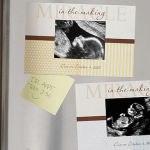In an attempt to debunk the notion that belief in an involved Creator is incompatible with science, astrophysicist Ethan Siegel writes in Forbes, “Faith, by definition, is the belief in something despite insufficient knowledge to be certain of its veracity.”
Siegel’s definition explains his vehemence about there being a hard distinction between theology and science. Insufficient knowledge, he contends, is faith’s weak point, and certainty is something faith can never provide.
Yet faith doesn’t require belief without evidence. The contention that the historic person Jesus of Nazareth rose from the dead, for example, is grounded in reliable accounts from eyewitnesses and persons informed by those who saw a formerly dead man alive. This is a phenomenal assertion, yes, but it’s no less credible for being old (the claim of a resurrected Jesus was made in the early first century). The documentary evidence is sound, and those bearing witness to what they saw made clear they meant what they said. As Jesus’s disciple Peter explained years later, “We did not follow cleverly devised myths when we made known to you the power and coming of our Lord Jesus Christ, but we were eyewitnesses” (2 Pet. 1:16).

The insistence of Jesus’s early followers that what they asserted was true implies they knew it sounded incredible. That’s why they went to such lengths to provide careful accounts of what they’d seen and heard. The Gospel accounts have no ring of fantasy about them.
Just for the sake of argument, then, let’s assume the Gospels and Acts are historically credible. And if so, they provide sufficient information to believe in the Jesus they characterized as God in human flesh.
Sufficient Evidence, Not Certainty
Sufficient—not exhaustive, but sufficient. That’s the Siegel test.
Certainty is another matter. Siegel holds up scientific certainty as something attainable and permanent. Yet his claim crumbles under the weight of his own logic. He notes that “last month . . . the LIGO [Laser Interferometer Gravitational-Wave Observatory] collaboration announced the direct detection of gravitational waves for the first time.” And this is “direct validation” of a key part of Einstein’s Theory of Relativity.
I have no doubt he’s correct. I just doubt the nature of the certainty he seeks.
Something materially unquantifiable is not necessarily false or unsure. Love is a prime example. But no doubt Siegel would say that religious faith, even if its content is true, is nonetheless unverifiable.
But is that the case? Yes and no. Yes, there was no camera outside the garden tomb filming the resurrection. But no, Christianity is rooted in assertions about events that happened in time and space and were observed, remembered, and recorded in texts asserting their own veracity. Such faith is not fantastic but reasonable.
As to the specific intersection of faith and science, an imponderably vast and immeasurably intricate universe could not have simply sprung from nothing. Its order and operability evidence both a mind and a power far distant from human comprehension.
This claim is an act of faith, in one sense, but it’s logic-based faith. The issue of what kind of mind and power created the universe—from its subatomic particles to its gigantic planets—is distinct from the idea that intellect and power, embodied in some extra-universal force, acted as I’m arguing (although the biblical account of this person is offered with authority and clarity in Scripture).
Faith and Science Not Incompatible
Faith and science are entirely compatible as long as faith doesn’t make scientific claims it cannot prove or (with reasonable confidence) deduce, and as long as science doesn’t assert the “scientific method” is the only source of knowable truth.
It’s also a canard to imply science is somehow detached from subjective preference. It’s undeniable, for example, that the preborn child is a fully human person, and that from early in her gestation she can feel pain. But many advocates of abortion-on-demand dismiss the scientific data, diminish the reality of human dignity within the womb, and deny the unborn’s right to life—a right that can be demonstrated by reason as well as religion.
Just take a look at a U.S. Department of Health and Human Services’s brochure, “An Alcohol-Free Pregnancy Is the Best Choice for Your Baby.” Even the HHS doesn’t deny that the developing embryo is a developing baby. But many allow their subjective preferences to trump the objective findings of science.
A final note: Many things scientists have claimed to “know” have proven false. As Olivia Goldhill observes in Quartz, “Many scientific ‘truths’ are, in fact, false.” Instances of demonstrable error don’t discredit an entire discipline; they point to the need for its very existence.
Science is about verifiable fact, as Siegel asserts. At least reasonably verifiable fact. And in that way, science is a bit like Christianity.
Is there enough evidence for us to believe the Gospels?
 In an age of faith deconstruction and skepticism about the Bible’s authority, it’s common to hear claims that the Gospels are unreliable propaganda. And if the Gospels are shown to be historically unreliable, the whole foundation of Christianity begins to crumble.
In an age of faith deconstruction and skepticism about the Bible’s authority, it’s common to hear claims that the Gospels are unreliable propaganda. And if the Gospels are shown to be historically unreliable, the whole foundation of Christianity begins to crumble.


































